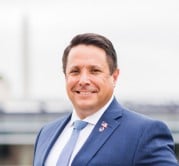Knowing what to expect and planning for the unexpected

Life can be easier when you know what to expect. A winter storm warning, a heavy traffic report, and practice tests are some examples that come to mind. In our industry, an upcoming examination should never sneak up on any credit union. Wise people are always prepared, which is a big reason why they overcome obstacles and consistently achieve success.
As a young, company grade Air Force officer, I was mentored by a wise, retired Chief Master Sergeant. Although he was a bit gruff at first, this senior non-commissioned officer became one of my biggest supporters, and I owe him a great deal for being able to also retire as a senior officer.
The best thing he ever taught me was how to read a regulation. He made sure I read the paragraph and chapter before and after a particular citation along with all the other supplemental regulations listed at the front. You would be surprised how many people fail to do that. In doing so, I was always able to be several steps ahead of my peers and supervisors over the rest of my career.
Second, he also instructed me to always “trust but verify” the things people say. Plus, he showed me how adopting a “show me” attitude was the key to proving regulatory compliance. I remember countless wing staff meetings where several mediocre officers pounded the table and claimed they were in full compliance. However, they made several excuses when their documentation, files, and proof were out of order. Suddenly, pounding the table was not so popular as bravado was soon replaced by whining and quibbling about regulatory standards.
Other commanders thought they could “pencil-whip” their documentation at the last minute. Examiners can see right through that. In fact, I once fired a squadron commander who tried this with me. As my mentor would say, pencil-whipping is an indication to dig further. He was exactly right, and consequently, it wasn’t the only reason I fired this commander. Fortunately, we were able to implement corrective actions before we were examined by higher headquarters.
Finally, knowing exactly when the examination is taking place is helpful. A smart commander always ensures the organization is prepared. This involves knowing where the organization was deficient on the last examination and ensuring there are ZERO repeat write-ups. It is vital to fix these deficiencies and processes immediately and document every corrective action taken.
I hope this is nothing new for credit union officials. The NCUA sends out a letter each year on what the supervisory priorities are and the comments from each board meeting offer further insight into the examination process. This all helps set expectations for the industry so people can prepare accordingly.
Here is something you don’t see all the time—forecasting and planning for the unexpected. Both demand a fair amount of creativity and vision along with earning the trust of the organization. Being able to imagine several extreme, but plausible scenarios is a crucial first step. This is where the truly exceptional outpace everyone else. Current examples of extreme, but plausible scenarios include sudden and unacceptable levels of interest rate risk, liquidity risk, credit risk, and a potential cyber-breach. Yet, these are scenarios credit union professionals typically expect.
So, what about a negative story that makes national headlines? How would you contain the story or present a factual rebuttal backed by hard data?
What if bank lobby narratives finally trigger adverse Congressional actions that change the Federal Credit Union Act? Could your credit union adapt?
What if a large credit union or a bank decides to compete in your market? Could you convince your board that your credit union would survive?
What else could happen? Do you have an action-plan on the shelf?
Do you even have a checklist for each type of extreme scenario?
How confident are you that your staff knows how to run these checklists?
What metrics are important and available for establishing a baseline and navigating the unknown?
How long has it been since you conducted a table-top exercise to run through checklists?
I know these all take time, and who wants to spend multiple hours in an already busy week doing another lousy table-top exercise?
I will tell you who sees the value in all this—WINNERS.
So, when is your next examination and will you be prepared? And when the unexpected happens, how resilient will your organization be in response to the situation?
There is no time to waste in knowing what to expect and planning for the unexpected. So, let’s get started!
Note: Colonel Hernandez was the Air Force Comptroller’s war planner during 9/11 and in OPERATION(S) NOBLE EAGLE, ENDURING FREEDOM, and IRAQI FREEDOM. He was also a member of the Air Force’s Crisis Action Team and emergency planning coordinator during the evacuation of the Pentagon. He later used these skills as mayor, city manager, chief magistrate, and Director of Emergency Management for a remote and isolated military installation (i.e., small municipality) supporting the USAF’s Global Hawk mission and over 3,900 personnel and family members.

